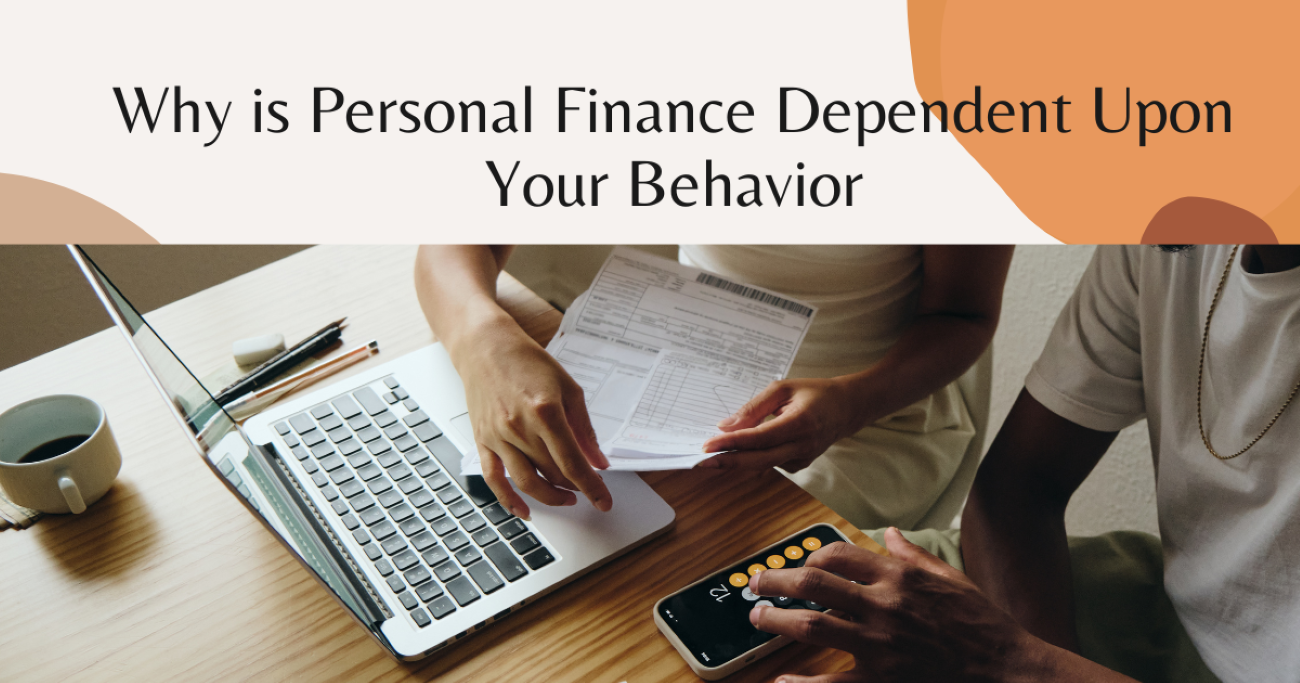There is the Inextricable Link Between Why is Personal Finance Dependent Upon Your Behavior
Personal finance is a multifaceted domain that extends far beyond the mere management of money. It is a reflection of one’s values, priorities, and, most significantly, behavior. The link between personal finance and behavior is intricate and nuanced, influencing every financial decision an individual makes.
In this article, we will delve into the various aspects of personal finance that are dependent upon behavior, exploring the psychological and behavioral factors that shape financial outcomes.
Understanding the Behavioral Economics of Personal Finance

Behavioral economics, a field that combines insights from psychology and economics, has significantly contributed to understanding the intricate relationship between behavior and personal finance. Traditional economic theories often assume rational decision-making, but behavioral economics recognizes that human behavior is influenced by cognitive biases, emotions, and social factors.
One of the key concepts in behavioral economics is loss aversion—the tendency for individuals to prefer avoiding losses over acquiring equivalent gains. This phenomenon can have profound implications for personal finance, as individuals may make decisions based on fear of losing rather than the potential for gain. For instance, a person might be hesitant to invest in the stock market due to the fear of losing money, even if the potential for long-term gain is substantial.
Emotional Influences on Financial Decision-Making
Emotions play a pivotal role in shaping financial behavior. Fear, greed, and overconfidence can lead individuals to make impulsive or irrational decisions. For instance, during a market downturn, fear may drive individuals to sell their investments hastily to avoid further losses. On the other hand, during a bull market, greed may lead to excessive risk-taking, as individuals chase high returns without adequately assessing the associated risks.
Understanding and managing emotions is crucial for making sound financial decisions. This involves recognizing emotional triggers, developing coping mechanisms, and maintaining a long-term perspective. Behavioral interventions, such as setting up automatic savings or investment plans, can help individuals overcome impulsive tendencies driven by emotions.
The Role of Habits in Personal Finance

Habits are deeply ingrained behaviors that significantly influence personal finance. From spending patterns to saving habits, individuals often operate on autopilot based on established routines. Developing positive financial habits, such as budgeting, saving consistently, and avoiding unnecessary debt, is essential for long-term financial well-being.
Conversely, detrimental habits, such as overspending, impulse buying, and procrastination in financial planning, can have detrimental effects on one’s financial health. Breaking free from negative financial habits requires self-awareness, discipline, and a concerted effort to replace them with more constructive behaviors.
Social and Cultural Influences Why is Personal Finance Dependent Upon Your Behavior
Behavioral aspects of personal finance are not isolated to individual decisions but are also shaped by societal and cultural factors. Social norms, peer pressure, and cultural expectations can significantly impact financial choices. For example, the pressure to keep up with a certain lifestyle or societal expectations regarding homeownership can drive individuals to make financial decisions that are not aligned with their long-term goals.
Additionally, cultural attitudes toward money, such as the emphasis on saving versus spending, can influence individual behavior. Recognizing and understanding these external influences is crucial for making informed financial decisions that align with one’s personal values and objectives.
The Impact of Cognitive Biases on Financial Decision-Making

Cognitive biases are systematic patterns of deviation from norm or rationality in judgment. They can distort perceptions and lead to suboptimal decision-making. Several cognitive biases have direct implications for personal finance.
Confirmation bias, for example, involves giving preference to information that confirms pre-existing beliefs. In the context of personal finance, this bias can lead individuals to seek out information that supports their existing financial choices, even if it is not objectively the best course of action.
Overcoming cognitive biases requires conscious effort, critical thinking, and a willingness to consider alternative perspectives. Financial education and seeking advice from objective, qualified professionals can help individuals make more informed decisions that are not unduly influenced by cognitive biases.
The Importance of Goal Setting and Financial Planning
Behavioral aspects of personal finance are closely tied to goal setting and financial planning. Setting clear, achievable financial goals provides a roadmap for decision-making and helps individuals stay focused on their priorities. Whether it’s saving for retirement, purchasing a home, or funding education, aligning financial decisions with overarching goals enhances the likelihood of success.
Financial planning involves assessing one’s current financial situation, setting realistic goals, and developing a strategy to achieve those goals. A well-crafted financial plan considers individual preferences, risk tolerance, and time horizons. Regularly revisiting and adjusting the plan as circumstances change ensures that it remains relevant and effective in guiding financial behavior.
The Role of Education in Shaping Financial Behavior

Financial literacy is a key determinant of financial behavior. Individuals who understand basic financial concepts are better equipped to make informed decisions about budgeting, saving, investing, and managing debt. Unfortunately, financial education is not universally emphasized, leaving many individuals ill-prepared to navigate the complexities of personal finance.
Improving financial literacy through educational programs, workshops, and accessible resources is essential for empowering individuals to make sound financial decisions. This includes understanding the basics of investing, managing credit responsibly, and making informed choices about insurance and retirement planning.
The Impact of Environmental Factors on Financial Behavior
Environmental factors, such as economic conditions, job stability, and access to financial resources, can significantly influence financial behavior. Individuals facing economic hardship or uncertainty may adopt a more conservative approach to financial decisions, focusing on short-term stability rather than long-term growth. Economic downturns can also impact employment opportunities and income levels, affecting individuals’ ability to save and invest.
In such challenging circumstances, adapting financial strategies becomes crucial. Emergency funds, flexible budgeting, and seeking additional income streams are strategies that individuals can employ to navigate financial uncertainties. Moreover, fostering resilience and maintaining a proactive mindset are essential for overcoming external challenges and continuing to make informed financial decisions.
Things You Should Know
Personal finance is inherently intertwined with behavior, encompassing a complex interplay of psychological, emotional, and social factors. Recognizing the influence of behavior on financial decisions is the first step toward cultivating a healthy financial mindset. Whether it’s understanding and mitigating cognitive biases, managing emotions, or developing positive financial habits, individuals have the capacity to shape their financial future through intentional and informed choices.
As we navigate the dynamic landscape of personal finance, it is essential to embrace a holistic approach that considers the behavioral aspects alongside traditional financial principles. By fostering financial literacy, setting clear goals, and being mindful of the psychological factors at play, individuals can empower themselves to make sound financial decisions that align with their values and aspirations. Ultimately, the inextricable link between personal finance and behavior underscores the need for a comprehensive and nuanced approach to financial well-being.

1 thought on “Why is Personal Finance Dependent Upon Your Behavior”